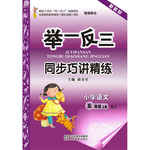题目内容
technique A.exciting B.magazine C.listen D.holiday

 举一反三同步巧讲精练系列答案
举一反三同步巧讲精练系列答案 口算与应用题卡系列答案
口算与应用题卡系列答案If you want to improve your child’s results at school, you could do a lot worse than ensuring that they do plenty of exercise. Scientists have already shown that physical activity can make you brainier. But a team in America has used scans to show that an important part of the brain actually grows in children who are fit. These youngsters tend to be more intelligent and have better memories than those who are inactive.
Scientists also found that one of the most important parts of their brains was 12 percent larger than those of unfit children. They believe that encouraging children to take exercise from a very young age could help them do better at school later. Researchers from the University of Illinois, in the U.S., studied the brains of 49 children aged nine and ten using a magnetic resonance imaging scan (核磁共振摄影扫描), a technique which provides very detailed pictures of organs and tissues in the body.
They also tested the fitness levels of the children by making them run on a treadmill (跑步机). The scientists found that the hippocampus, a part of the brain responsible for memory and learning, was around 12 percent larger in the fitter children.
Professor Art Kramer, who led the study published in the journal Brain Research, said the findings had important implications for encouraging individuals to take part in sport from a young age. “We knew that experience and environmental factors and socioeconomic status all impact brain development,” he said. “If you get some terrible genes from your parents, you can’t really fix that, and it’s not easy to do something about your economic status. But here’s something that we can do something about.”
【小题1】 If you want to improve your children’s result in school, ____________.
| A.it is worse to ensure that they do plenty of exercise |
| B.you can have their brain scanned |
| C.it could be better to make sure that they do a lot of exercise |
| D.you can do a lot except ensuring that they do exercise |
| A.The fitness level of the children is linked to their intelligence. |
| B.Children who have a larger hippocampus will probably have better memories. |
| C.You can do something about the genes from your parents. |
| D.Unhealthy children will probably have a smaller hippocampus than others. |
| A.genetic factor | B.economic status | C.physical fitness | D.economic development |
Many people have heard stories of the California gold rush during the 19th century, when lots of people went there in search for gold. Panning (淘洗) for gold has a rich and interesting history. Nowadays some people continue to pan for gold in California. Although it cannot be regarded as a method for earning income, taking on gold-panning as a hobby can give you a feeling of being in the old west and get you out into nature.
The only tool that is required to pan for gold is a gold pan. You can use a regular old flat pan, but “officially” gold pans are quite cheap so you may as well buy one that is made for the task. Most sold pans come in either plastic or medal.
Once you have your pan you will want to start practicing your gold panning technique. Panning for gold works because gold is much heavier than most rocks. To pan for gold you add rock and dirt form the bottom of a stream to your pan and then gently let water flow through the pan. The lighter-weight rocks are slowly swept away while any gold will be left behind in the pan.
To start panning for gold, first you will need to find a good location. Try checking maps of your area and old history books to find location where there were gold mines in the past. Even though most of the gold have already been removed, there are likely to be small leftovers that you can find. Once you have found an area that looks promising, look for any small stream or river where you can try out panning for gold.
Panning for gold requires patience and it may be a long time before you hit anything of value. However, it is an enjoyable hobby and provides a great opportunity to get outdoors, so don’t give up too quickly.
【小题1】What is Paragraph 4 mainly about?
| A.Where to pan for gold. |
| B.How gold-panning works. |
| C.What tools are needed. |
| D.A promising area for panning. |
| A.Opposed. | B.Indifferent . | C.Positive. | D.Neutral . |
| A.Lifestyle. | B.Health. | C.Travel. | D.Sports. |
 test could not be more specific than somewhere between eastern Oregon and western Wyoming.
test could not be more specific than somewhere between eastern Oregon and western Wyoming.